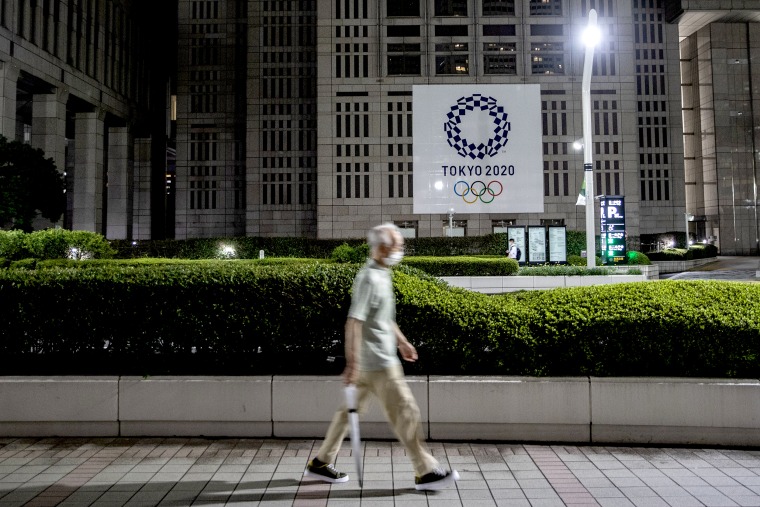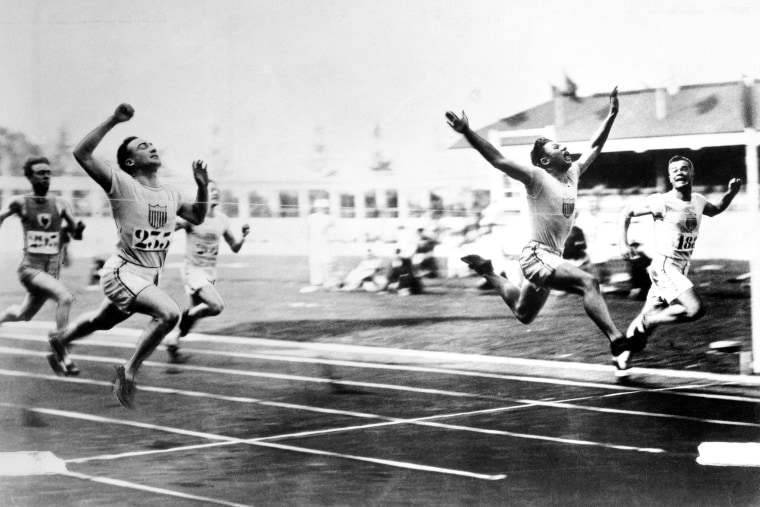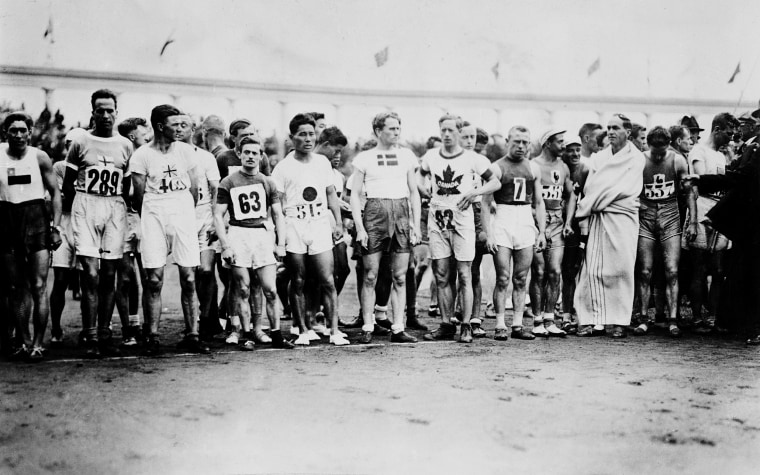The Tokyo Olympics, delayed a year by the pandemic, get underway next week at a time when the worldwide Covid-19 crisis is far from over — and in a country where many fear the contagion they’ve managed to mostly keep at bay will be fanned by a sudden influx of foreigners.
But these will not be the first Olympic Games to be stalked by a deadly virus.
More than a century ago, 2,626 athletes from 29 nations descended on Antwerp, Belgium, in August 1920 to compete in the Summer Olympics just a few months after the Spanish Flu had run its course.
From February 1918 to April 1920, over a third of the world’s population caught the Spanish Flu and 20 million to 50 million people died. That’s far more than in the current pandemic, which has resulted so far in 185 million cases and some 4 million deaths worldwide.
The chief concern in 1920, however, was not whether it was safe to hold the Olympics in the shadow of a plague. It was whether the Belgians, whose country was still a wreck two years after the end of World War I, had the means to successfully stage the games.
“An international farce” was how Sir Eyre Crowe, the United Kingdom’s undersecretary for foreign affairs, rated the impending Antwerp Olympic Games and recommended that Britain have nothing to do with them.
The Antwerp Games went on even though there was no vaccine yet against the Spanish Flu, and even though that virus was especially dangerous to the young, unlike Covid-19, which poses more risk to the elderly and infirm.
“Typically, a flu afflicts the very young and very old the worst, whereas in 1918, the 20/30-year-olds also died in shockingly high volume,” Jim Harris, a history professor at Ohio State University and an expert on the period, wrote in an email. “We didn’t have the capacity to see a virus under a microscope until the 1930s, so we were diagnosing based on symptoms.”
But some of the preventative measures that conservative Republicans, in particular, have railed against during the current pandemic were deployed by public health officials battling the Spanish Flu.
“Masks, social distancing were commonly used as the main nonpharmaceutical interventions in 1918,” Harris said.

Back then “we did not have the sophisticated disease surveillance systems that we have today,” said Dr. Anthony Santella, professor of health administration and policy at the University of New Haven.
We do now and the Tokyo Games “are taking place during an active pandemic and will have several restrictions in place such as barring spectators,” Santella said. “The Covid-19 pandemic is far from over.”
(NBCUniversal, the parent company of NBC News and MSNBC, owns the U.S. media rights to the 2020 Olympics.)
Santella is far from alone in his fear that the Tokyo Games could turn into a Covid-19 superspreader event.
One of the most prominent voices sounding the alarm about the Olympics has been Hitoshi Oshitani, a Japanese scientist credited with crafting the country’s successful pandemic strategy of avoiding the "Three Cs": closed spaces, crowds and contact situations.
“It’s 100 percent impossible to have an Olympics with zero risk … of the spread of infection in Japan and also in other countries after the Olympics,” Oshitani told the Times of London.
Also, poll after poll of the Japanese people has shown tepid enthusiasm for the Olympic Games because of fears of spreading Covid-19.
The Antwerp Games were meant to symbolize Europe’s recovery from the World War, and Belgium was chosen specifically because it had suffered so much.
“If ever a gesture were called for, at such a moment, what could have been better than the choice we are making of Antwerp, as the venue for the seventh Olympiad?” Baron Pierre de Coubertin, then-president of the International Olympics Committee, said at the time. “What other candidate could equal it?”
Doves were released during the opening ceremony and the Olympic flag with five rings made its debut.
But two years after the armistice was declared, Europe was still not at peace. As the Olympic Games got underway in Antwerp, newly independent Poland was repelling a Soviet invasion that threatened to plunge the continent into another war.
Germany, whose plans to host the 1916 Olympics were canceled because of the war it wound up losing, was not invited to compete. Neither were its allies Austria-Hungary, Bulgaria and the Ottoman Empire. The Soviets also did not get an invitation.
North Korea was the first country to announce it was sitting out the Tokyo Olympics, but because of Covid-19 concerns rather than geopolitics.
The Tokyo Games, which officially kick off on July 23, will be held during a state of emergency and, as a result, there will be no fans in the stands watching the world’s best athletes compete for medals.

The crowds were also sparse at the Antwerp Games, because of the relatively high cost of tickets and lack of fan interest. In fact, the 1920 Olympics lost money and bankrupted the Belgian Olympic Committee.
In the aftermath of the war, Belgium could barely feed its own people, let alone the athletes arriving from abroad.
“The food situation was similarly bleak, with athletes given only a roll, coffee and ‘one little sardine’ for breakfast,” Australian historian Keith Rathbone wrote in an article for The Conversation. “They were forced to buy their own food.”
Many of the athletes slept on cots in military barracks. And the venues where they competed were primitive.
Heated pools? Not in Antwerp. The swimmers competed in a canal and the water was so cold many had to be rescued after suffering from hypothermia, Rathbone reported.
Still, the International Olympic Committee in the run-up to the Tokyo Games cast the Antwerp competition as “an edition of the games that is still recognized for its lasting contributions to sport, gender equality, unity and peace.’
“Today, once again, the world is facing uncertain and challenging times,” IOC President Thomas Bach said last August. “This time the Olympic Games Tokyo 2020 can be a light at the end of this tunnel.”
The 1920 Olympics were certainly a success for the U.S. team, which raked in a world-leading 95 medals, 41 of them gold.
Swimmer Ethelda Bleibtrey won three of those golds, just a year after being arrested at a pool for "nudity" after she went swimming without stockings.

